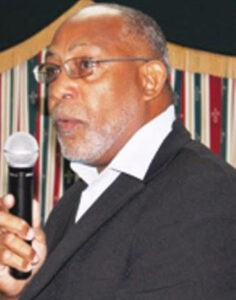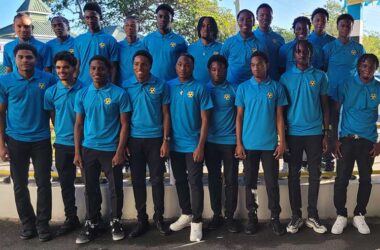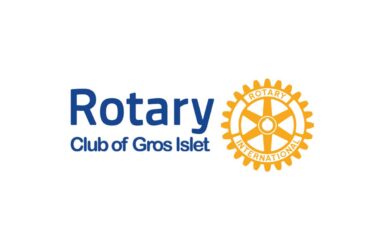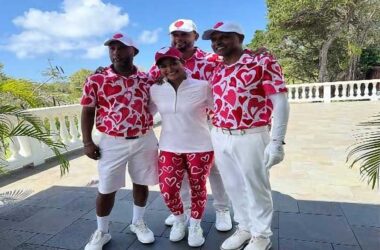With 120 days to go before the 2020 Summer Olympics Games in Tokyo, Japan, expectations are high. But will Tokyo 2020 arrive with more questions than answers or will it be the same old story, more athletes testing positive for banned enhancing drugs?

We continue our conversation with the former president of the Saint Lucia Boxing Association; Saint Lucia Basketball Federation and Vice President of the Saint Lucia Amateur Swimming Association (SLASA) Dr. Kenneth Louisy. Part one of that conversation could be found in last weekend’s issue of this newspaper.
Dr. Louisy has also served as Saint Lucia’s representative on the Regional Anti-Doping Organization (RADO) before stepping down after many years of service.
In an effort to educate our readers and Saint Lucians at large on the use of banned substances commonly called, Performance – Enhancing Drugs or PEDs, this reporter posed some questions pertaining RADO to Dr. Kenneth Louisy.
What can an athlete do to avoid testing positive for PEDs?
“First and foremost, the athlete has to be knowledgeable, they must know that anything that they take into their system they are responsible for it, whether it be given to them by a coach, a doctor or anybody, if that product has a prohibited substance then they are responsible for the substance going into their system, that’s number one”.
“You ask me now, how difficult it is. There is a list that the World Anti-Doping Agency, every year, puts out on prohibited banned substances and methods. Athletes have to familiarise themselves with that list. When they go to the doctor or the pharmacist, they have to say, “I am an athlete and I am on the list of athletes in Saint Lucia that can be tested for banned or controlled prohibited enhancing drugs and I need something for cough and cold. The list is posted on line, the pharmacist or doctor ought to check to see that the product they are giving the athlete or the product the athlete is going to pick up over the counter does not have a banned substance”.
“There is a website call Global DRO, on that website, you can put in the substance that you want to find out about and automatically it will tell you whether it is banned or not.”
How long will it take for a banned substance to be eliminated from the body?
“It depends on what medication they are taking, some are long acting, and some are short acting. If they are on a short acting drug like epinephrine you could take over the counter that could come out of the system in a couple of days. Steroids’ tend to take a longer period of time to be eliminated. There is a whole garnet of drugs these athletes may want to take for performance enhancing purposes, but it would depend on the method that they are using and also it would depend on the quantity and the type of drug that they are using. I can’t give an exact answer for this drug and for this athlete it would be that, generally speaking steroids’ are the ones that take a longer time;things like other hormones and growth factor they tend to stay in the system for a longer period of time”.
“Good old marijuana most of our athlete especially those coming from certain sports which I will not mention, it takes six weeks, but it is not banned outside of competition”.
Should an athlete be worried at any time about rubbing creams, eye drops and any other medication which they don’t need to swallow?
“Some of the substances that are used are creams. Eye drops i am not sure about, but creams, yes. You have steroid creams that can be used; i am not too sure on other creams that can be used. Some of them you can use them. The steroids’ i am talking about are the anabolic steroids’, not the catabolic ones, but definitely it’s absorbed into their system.
What are whereabouts and why it is so important?
“Whereabouts of an athlete is something that athletes have to be educated about. It is one of the forms ascertaining the viability of an athlete for Testing and there are certain guidelines when it comes to the whereabouts of an athlete. If an athlete is selected to the national or international testing pool that means they are in a pool where testing can be done at anytime. They have to provide, on an annual basis, their address, contact numbers, work place or school/ university a specified time in the day when they will be available for Testing.
“For example Mindoo Phillip Park, i go there to train between 4.00 p.m – 6.00 p.m. Monday to Friday. Weekends I don’t train. I live at X place, i am home most times more so early morning or late evening. You have to provide that information and if you missed testing because you are not where you said you would be during a particular period of time you may get two bites of the cherry but you will be sanctioned after”.
“You can also say that I will be flying from Saint Lucia to Hong King for a meet so I will not be available for testing during that period of time because I will be in the air or in transit. These are things that you can do. It is very important because when we do testing in Saint Lucia the whereabouts information sometimes is very sketchy so we have to do some detective work to find out where the athletes are. It really and truly make the work of the Anti-Doping Officers a lot easier and it guarantees, yes i am available during those times and there is nothing for me to be worried about as an athlete.”
“There are athletes that would know the time of year they usually do the test but would make themselves unavailable. You would have heard of this Jamaican cricketer (Andre Russell) who was sanctioned because he missed a couple of whereabouts sessions. When it does work it works well, but there are challenges”.
The final part of Dr.Louisy interview will continue in the March 27th edition of THE VOICE Newspaper.



![MSS takes on VPSS in an action thriller [Photo credit: MYDS]](https://thevoiceslu.com/wp-content/uploads/2026/02/MSS-takes-on-VPSS-in-an-action-thriller-feat-380x250.jpg)
![Tapon House recorded its fourth consecutive title victory [Photo credit: MYDS]](https://thevoiceslu.com/wp-content/uploads/2026/02/Tapon-House-recorded-its-fourth-consecutive-title-victory-380x250.jpg)

![Julien Alfred, left, edges Jacious Spears to win the women’s 60 metres at the Tyson Invitational in Arkansas, USA on Friday [Photo credit: CMC]](https://thevoiceslu.com/wp-content/uploads/2026/02/Julien-alfred-1-380x250.jpg)
![Denver Alphonse Jr. [Photo Credit: ASC KCS]](https://thevoiceslu.com/wp-content/uploads/2026/02/Denver-Alphonse-Jr-feat-380x250.jpg)
![On field action in the Bay Bay Cup [Photo credit : MYDS]](https://thevoiceslu.com/wp-content/uploads/2026/02/On-field-action-in-the-Bay-Bay-Cup-feat-380x250.jpg)



![VFCSS takes on BCSS in on court action at the BIF [Photo credit : MYDS]](https://thevoiceslu.com/wp-content/uploads/2026/02/VFCSS-takes-on-BCSS-380x250.jpg)
